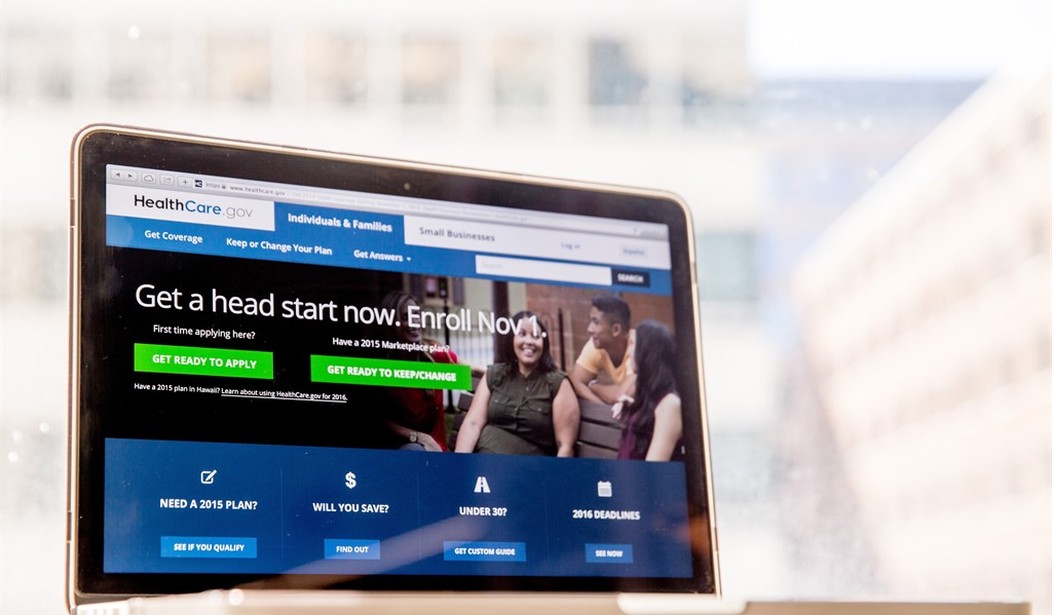Last week marked the sixth anniversary of the Patient Protection and Affordable Care Act (ACA). But it’s hardly anything to celebrate. The average bad marriage that ends in divorce lasts about eight years in the United States. So maybe there’s still time to end this troubled union of bad health policy and income redistribution.
The ACA was intended to make health coverage affordable using an age-old strategy -- other peoples’ money. For instance, ACA regulations require insurers to accept all applicants -- including unprofitable ones -- at rates not adjusted for their health risk. Premiums can vary somewhat based on age, but not health status. A plethora of new taxes -- mostly on medical care and health insurance -- are supposed to somehow make coverage more affordable. For those who don’t understand economics, taxing something raises its cost, not lowers it. Other funding mechanisms include draconian cuts to Medicare and higher deficits to expand Medicaid.
In an attempt to transfer wealth from medical low-spenders to big-spenders, Obamacare has purposely undermined affordable coverage. In the process it also removed the incentives health plans use to encourage healthier lifestyles. Healthy middle-class folks, who don’t qualify for subsidies, have largely shunned Obamacare Marketplace plans. The inevitable result is that the exchange has become an expensive high-risk pool for people who are poorer or sicker than average. Obamacare is a bad deal for all but the most costly enrollees or those receiving lavish subsidies. Indeed, 83 percent of exchange enrollees are ones who receive subsidies. A report from the University of Pennsylvania’s Wharton School found all but the most heavily subsidized Obamacare enrollees would still be better off financially if they skipped coverage and pay for their own medical care out of pocket.
Recommended
People often make the mistake of assuming that everyone needs comprehensive coverage that protects them from medical problems that are exceptionally rare. But most people covered by health insurance actually experience very low claims in any given year. About half the population spends less than $500 annually on medical care. Thus, health plans with benefits less generous than Obamacare would be both affordable and meet the typical medical needs of most Americans. But to accomplish the goal of making generous health coverage affordable to people with health concerns, the ACA had to force Americans to purchase health coverage and limit their choice of health plans. Health insurance that does not cover a plethora of preventive care, plans that cap benefits at predetermined levels and plans that reward Americans for having led healthy lifestyles are no longer allowed.
Prior to ACA, health plans with limited benefits (or high deductibles) were less expensive than coverage with onerous mandates and costly regulations. Those who could not afford comprehensive coverage could choose to either self-insure for day-to-day medical needs (now illegal), enroll in a limited benefit plan (now banned under Obamacare) or enroll in a high-deductible plan. Of those three options the only choice left is high-deductible plans. Prior to the ACA, high-deductible plans were very affordable. Premiums were low enough to have money left over to fund Health Savings Accounts to cover a portion of the costs below the deductible. Since Obamacare, high-deductible plans have become costly even though they cover almost none of Americans’ day-to-day medical needs.
Consider this: according to the comparison website HealthPocket.com, a family who receives no subsidies pays nearly $1,000 per month for a bronze plan with a high deductible. I priced Bronze plans for my own family and premiums would run $12,000 per year and require deductibles of $6,750 apiece. A family deductible of $13,500 means that despite sending $12,000 to a health insurer, all of our health care needs must be paid out of pocket. That is akin to throwing money down a rat hole to most sensible Americans.
I’ve talked to people who say they’ve made the conscious decision to forgo health coverage and just pay the penalty and pay cash for medical care. A few even think they can get out of the penalty. One lady I talked to suggested she’d be far better off just taking the money she would have spent on largely worthless insurance coverage and using it to pay for actual medical care. She will pay out of pocket for her physician visits. She will use a discount pharmacy card for her prescription drugs. She will pay for laboratory testing out of pocket.
Many enrollees remain uninsured despite the mandate -- only signing up for coverage if they become sick or need expensive medical services. Eager to grow exchange plans as much as possible, the Obama administration foolishly created multiple special enrollment categories that allows just about anyone to sign up long after the open enrollment deadline has passed. Individuals signing up using special enrollments aren’t just slackers who lost track of time during open enrollment. Late enrollees use more medical care than those enrolling during open enrollment. They are also more likely to drop coverage soon after receiving expensive medical care.
Many of those enrolled in Obamacare are gaming the system, cheating insurers and driving up the costs for honest folks who just want affordable coverage. It’s rather sad when you realize the Affordable Care Act made health care unaffordable for millions of middle-class families and left many of those formerly-insured better off with no coverage at all. Obamacare is hardly a legacy to celebrate. It’s time for Congress to go back to the drawing board and work together to find a solution that creates the appropriate incentives for all stakeholders, as well as affordable, accessible health care for all.

























Join the conversation as a VIP Member